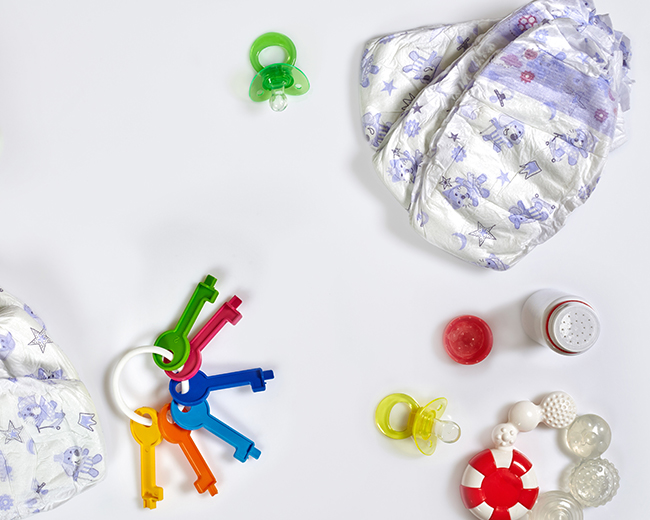Teething doesn’t cause fevers - and other myths busted
Drooling, chewing, and mild fussing are the most common baby teething symptoms. Here’s what you need to know.
When it comes to baby teething symptoms, there's a lot of mixed information out there. Some people say teething is really painful. They blame it for causing fevers, nappy rashes, earaches, and pretty much any other ailment. But, say the experts, those are myths and haven’t been confirmed by research. Teething can cause some mild discomfort and fussiness, but anything more than that should be evaluated as a more serious concern.
Teething typically starts at around six months of age, says Gauteng pharmacist Stephani Schmidt. “However, this varies and the first tooth may appear from as early as four months of age or it may take as long as 10 months to appear,” she says. (Did you know, some babies are even born with a tooth or two?)
The bottom or lower front teeth usually appear first followed by the top or upper front teeth. Pain can be associated with this process and your little one may be a little miserable, but in other cases the tooth may just arrive without much ado.
Myth: Teething causes fever
According to the American Academy of Pediatrics (AAP), babies may have a "very slight" increase in body temperature when they're cutting a new tooth. It's important to note, though, that this so-called "teething fever" isn't usually high enough to be considered an actual fever, which is recognised to be a temperature of 38C or above. Researchers behind a study published in Pediatrics found that "eruption of primary teeth is associated with a rise in temperature, but it was not characterised as fever". This distinction is important because if a baby develops a real fever, assuming that the cause is teething may lead doctors or parents to miss possible illness or infection that requires treatment.
Myth: Teething causes diarrhoea
When your baby is teething they will be dribbling a lot more and the extra saliva being produced and swallowed can make their stools softer than usual. However, studies show that diarrhoea is not a sign of teething.
Myth: Teething causes nappy rash
This one’s related to the one above. Some people will tell you that the extra saliva from teething mixes in baby’s tummy and creates loose stools, which can be a nappy rash waiting to happen. But again, this theory hasn’t proven out in research, so if your baby has a nappy rash, you’ll want to consider a cause other than teething. To avoid nappy rash, change your baby’s nappy as soon as possible when it’s wet or soiled.
Myth: Teething causes earaches
Nerves in the back teeth extend to the middle ear, so it can feel like the pain is radiating into the ear. If your child is tugging on their ear, running a fever, or uncomfortable lying down, it’s more likely an ear infection and not teething so get it checked by a doctor.
Teething shouldn’t be hard for your baby. If your baby is showing symptoms like fever, nappy rash or earache, chat to your healthcare provider.
IMAGE: 123rf.com

